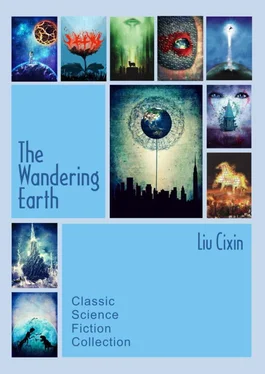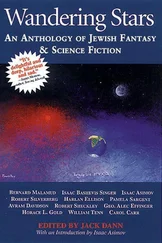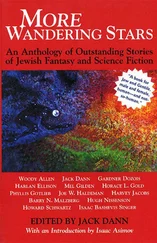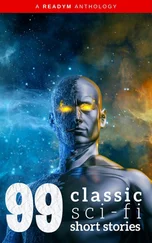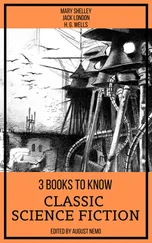After a while, we made our way to the ocean. Standing on the seashore we could see the pinnacles of submerged skyscrapers reaching up out of the waves with the ebb of the tide. We beheld the gleaming whitewash of water rush out of their windows, forming cascades of waterfalls.
Back then the Reining Age had only just come to an end, leaving the Earth with the horrifying aftermath of its passing. The tides, quickened by the Earth Engines, had swallowed two out of every three cities in the Northern Hemisphere; then the global increase in temperatures melted the polar icecap, turning the ensuing floods into a deluge that spread to the Southern Hemisphere. Thirty years earlier my grandfather had witnessed giant 300-foot waves that had engulfed Shanghai. Even now, he could never tell us about it without his gaze slipping into a thousand-mile stare.
Our planet had already changed beyond recognition before it even set out on its journey. Who knew what hardships awaited us on our long travels through outer space?
At the seashore we boarded an archaic vessel called “ship”. As we departed the coast, the Earth Engines grew ever more distant. Within a day’s travel, they had disappeared altogether behind us. Before us the ocean was bifurcated by light; in the west, the azure glow of the Earth Engines’ jets; in the east, the shimmering pink water, illuminated by the Sun’s rays. We sailed straight down the glittering seam where the two glows met on the ocean’s surface. It was a truly marvelous sight to witness. As our voyage continued, the azure glow slowly waned, while the pink light gradually waxed. With its waxing, unease began to spread across the ship. We children could no longer be seen on deck. Seeking shelter in the belly of the ship, we even drew the porthole blinds tight.
One day later, the moment we dreaded most finally arrived. We all gathered in the large cabin that we used as our classroom to hear Ms. Xing’s announcement.
“Children,” she said, “we will now go and watch the Sun rise.”
None of us moved a muscle; we all stared at her in blank disbelief. She attempted several times to get us going, but we refused to move.
Seeing our fear, another teacher pointed out the problem to Ms. Xing. “It’s just as I said,” the teacher told her. “The world-trip should be scheduled before we teach them modern history. It would make it easier for the students to adapt.”
“It’s not that simple,” Ms. Xing retorted. “They learn it all from their surroundings, long before we teach them any modern history.” She then turned to some of the class monitors. “You children go first and don’t be afraid. When I was a little girl, I was very nervous before seeing my first sunrise, just like you are now. But it was all good.”
Finally, we got up and one by one made our way to the cabin door. As we shuffled along, I felt a small, clammy hand grip my own. I looked down and saw it was Ling.
“I’m scared,” she whispered, her voice trembling.
“We’ve seen the Sun on TV. It will be just like that,” I told her consolingly.
“Just like what?” she countered. “Is a snake on TV like seeing a real snake?”
For a second I searched for the right words, but then decided not to give an answer. “…Anyway, we should get a move on or we’ll get marked down for the course!”
Ling and I grasped each other’s hands tightly as we made our way onto the deck with the other children.. Shaken by fear and full of trepidation, we faced our first sunrise.
“Consider this,” Ms. Xing told us. “We only began fearing the Sun three or four centuries ago. Before that, humanity was not afraid of the Sun. In fact, on the contrary; in their eyes the Sun was both dignified and magnificent. Back then, the Earth still turned and people saw the Sun rise and set every single day, cheering the dawn and praising the beauty of sundown.”
Ms. Xing stood with us as we watched at the ship’s bow. Her long hair was caught by a gust as the first rays of light shot over the horizon, and for a moment I could not shake the thought of some monstrous sea creature breathing up the front of the ship.
Then, finally we beheld that soul-chilling blaze. At first it was only a point of light on the horizon, but it quickly grew into an expanding arc. My breath caught in my throat as I felt myself falling into the clutches of terror. It felt as if the deck below my feet had disappeared. I imagined myself plummeting into the watery abyss below; and I fell… Ling fell with me, her wispy frame clinging to my shaking body. The other children, everyone else◦— the entire world◦— all fell.
And then I remembered the riddle.
When I first heard it, I had asked my philosophy teacher what color that wall was.
He had told me: “It must be black.”
The answer had seemed off to me. I always thought that a wall of death ought to shine. That was why I had remembered it when I saw the wall of plasma. In that era, death was no longer black; it was the glare of a flash, for it would be a final flash that would vaporize the world.
Three centuries ago, astrophysicists discovered that the fusion of hydrogen to helium inside the Sun had abruptly accelerated. In response, they launched more than 10,000 probes straight into the Sun. Ultimately they managed to establish a precise mathematical model describing the celestial body. Using this model, supercomputers calculated that the Sun was already on the verge of evolving away from the main sequence, ending its hydrostatic equilibrium and with it, its life-giving heat and light. It was projected that there was only a short time before the fusion of helium would spread through the entire Sun, causing a runaway explosion, the so-called helium flash. After the flash, the Sun would transform into a huge but dim red giant. It would grow so large that the Earth would be inside the Sun, as if swallowed into the Sun!
In fact, that could never happen; never happen because the preceding helium flash would have already vaporized the Earth.
It was all to occur in 400 years; since then, 380 years had passed.
This stellar disaster would not only annihilate and consume every inhabitable telluric planet in the solar system, but it would also forever change the nature and orbits of the Jovian planets. After the primary helium flash, the heavy elements would re-accumulate in the core of the Sun and further helium flashes would repeatedly occur for a period of time. This was a “period” in the stellar sense, lasting many, many thousands of human lifetimes.
All of this made it impossible for humanity to continue living in the solar system, leaving only one last resort: The migration to another star. The technology of the time allowed for only one destination for this migration. That destination was Proxima Centauri, the star closest to ours, a mere 4.3 light-years away. But while it was easy to reach a consensus on the goal of the migration, the means were far more controversial.
To enrich the learning experience, our ship was turned back twice on the Pacific, giving us two sunrises. By then we had become accustomed to the sight and we started to believe that the children of the Southern Hemisphere, who were constantly exposed to the Sun, could actually exist and live. We continued our journey into the dawn, watching the Sun rise higher and higher in the sky. With it the temperatures too began to rise.
One day, as I was drowsily resting in my cabin, I was suddenly disturbed by the sound of a quarrel coming from outside. Moments later the door opened and Ling popped her head in.
“Hey, the Spaceship Faction and the Earth Faction are at it again!” she shouted excitedly.
I could not have cared less; after all, they had been fighting for almost 400 hundred years now. Nonetheless, I went outside with her for a quick look and saw a group of boys fighting. It was immediately obvious that Tung was up to his usual games again. His father was an incorrigible member of the Spaceship Faction, and was in fact still in prison for joining an insurgency against the Unity Government. Seeing Tung, I guessed that the apple hadn’t fallen far from the tree.
Читать дальше
